How to become a DevOps engineer
Your go-to-guide for salaries, education roadmap, skills and interview questions.
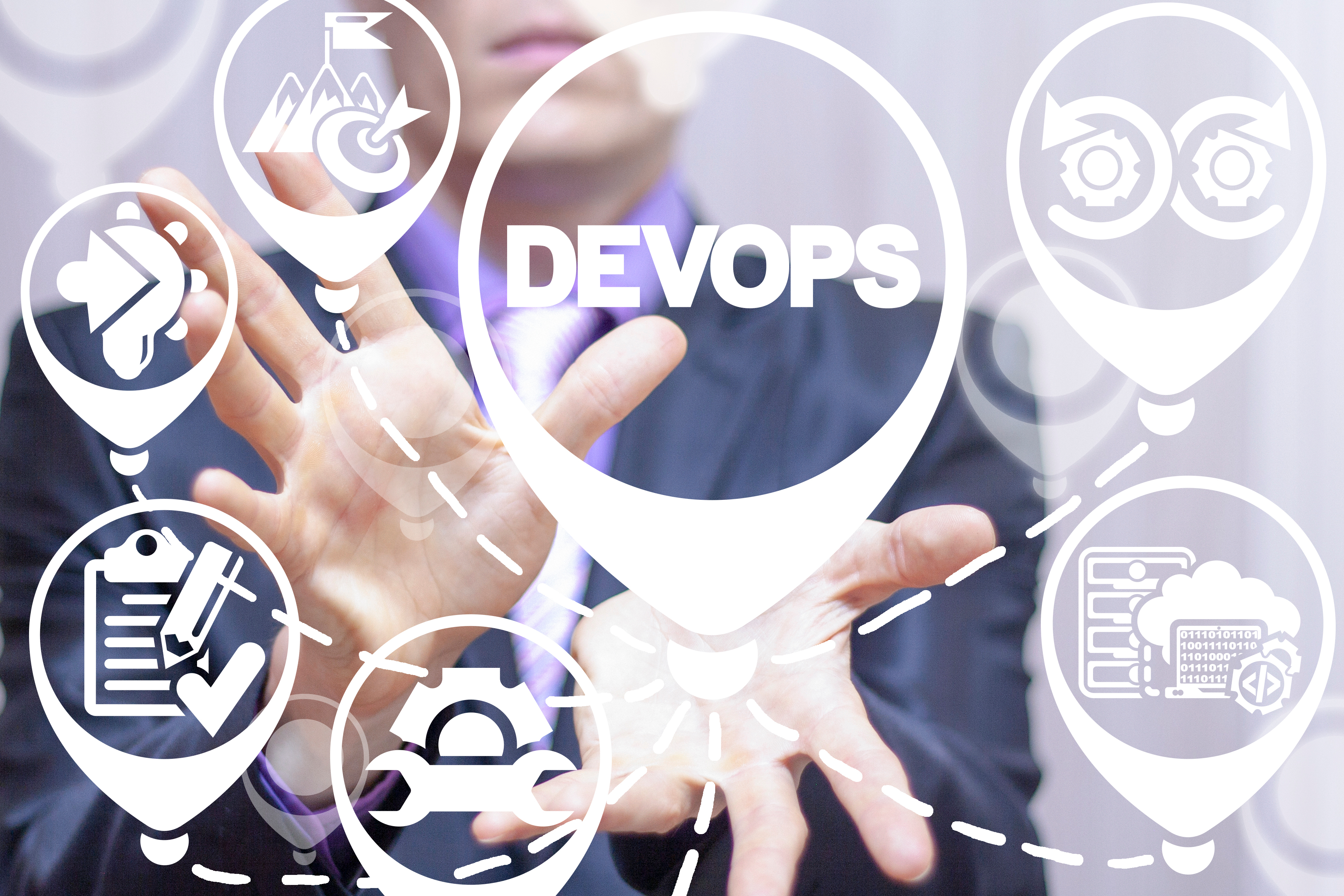
DevOps engineers are one of the most sought-after job positions in the tech industry, with many companies experiencing a shortage of people with adequate skills for the role. This stems from the combined effects of the digital skills shortage as well as the growing digitisation and automation of business processes during the pandemic, and creates an environment where retraining as a DevOps engineer is one of the lucrative career moves of 2022.
The role is currently considered the fourth best job in the United States according to Glassdoor’s annual ranking. However, this isn’t limited to one part of the world – companies based in Singapore have seen salaries in the field increase by a fifth (22%) amid a wave of venture capital investment.
This high demand for new DevOps engineers is only expected to grow, with the DevOps market expected to reach $12.85 billion in the next three years, according to data from Grand View Research.
However, retraining into a completely new career is a significant life decision which can be considered overwhelming to many, leading to becoming stuck in a different role that offers little to no prospects and a lower salary – despite being more than suited to work in DevOps. In order to aid the process as well as clarify any uncertainties surrounding the DevOps engineer role, IT Pro has compiled this guide to tackling all elements of the process: from education and skills training to salary expectations and interview questions. Read on to find out how to become a DevOps engineer.
Who is a DevOps engineer?
A DevOps engineer is a tech expert who understands the entire software development lifecycle — a six-stage process that guides the software development process — and uses various engineering tools and techniques to develop pipelines and solve operational challenges.
DevOps engineers encapsulate the depth of knowledge and years of experience in a wide array of open-source technologies and tools. They’re masters in coding, integrating, scripting and testing, and they possess extensive data management skills.
For this reason, they’re rightly called ‘Special Forces’ who hold core attributes around open communication, collaboration, and reaching across functional borders.
Get the ITPro daily newsletter
Sign up today and you will receive a free copy of our Future Focus 2025 report - the leading guidance on AI, cybersecurity and other IT challenges as per 700+ senior executives
Typically, DevOps engineers are senior developers or system administrators with business, configuration, operation, automation, and leadership skills.
Some people argue the DevOps engineer title is antithetical to the DevOps practice, as it creates another silo. Thus, some companies have people who perform DevOps management tasks without the DevOps engineer title.
What do DevOps engineers do?
RELATED RESOURCE
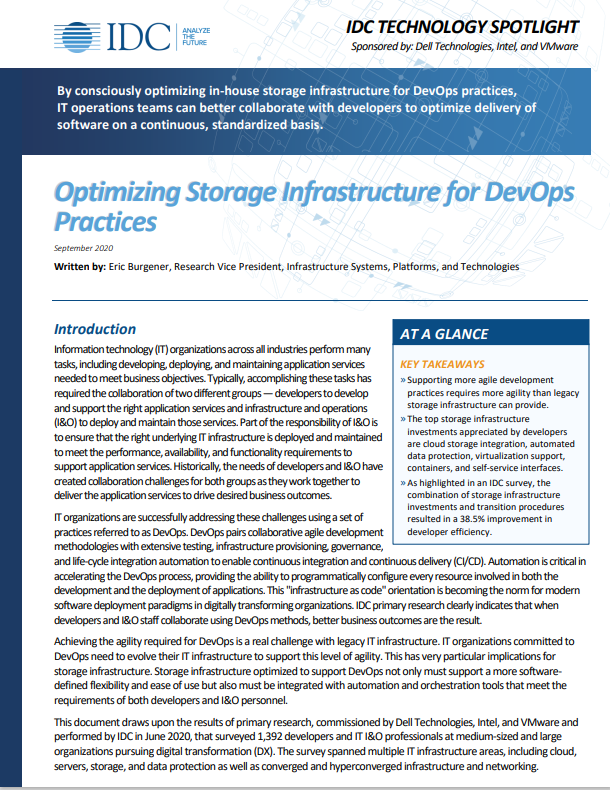
Optimising storage infrastructure for DevOps practices
Maintaining IT infrastructure to best support application services
As the term suggests, DevOps engineers facilitate collaboration between the development and operations teams to enhance the product quality and streamline workflow. They oversee the efficient release and use of new software code and products.
DevOps engineers are responsible for an application or piece of software from development through testing, infrastructure deployment, application deployment and end-user feedback. They also implement changes based on the input.
DevOps engineers typically spend much of their time researching new technologies that can improve efficiency. They deploy scalable applications and integrate infrastructure with the application deployment process.
Here are a few tasks and duties of a DevOps engineer:
- Designing tools and processes for managing infrastructure
- Working on multiple platforms across various programming languages
- Automating testing and deployment processes and workloads across cloud providers
- Supporting internal and external stakeholders on different platforms
- Creating tools and processes for increased user satisfaction
- Managing version control through Git or similar systems
How to become a DevOps engineer
To become a DevOps engineer, you’ll need technical and interpersonal skills, as you’ll act as a catalyst to break the communication and operation barriers between the development and operations teams in organizations.
The DevOps engineer role is typically a senior position that demands extensive industry experience. Thus, employers might prefer candidates with a tertiary qualification in computer science or related fields and industry experience.
Several career paths lead to becoming a DevOps engineer. Below is a common approach many DevOps engineers take.
Step 1: Earn a bachelor’s degree
Suppose you wish to become a DevOps engineer. In that case, the logical first step is earning a bachelor’s degree in a discipline related to math, computer science, or electronics engineering, with a focus on software development.
Step 2: Earn a master’s degree:
Completing a master’s degree in software development will help you advance your DevOps engineer career. You will learn skills in different aspects of software development, like coding and emerging technologies.
If you are a working professional, consider an online master’s program to help balance your career and education.
Step 3: Acquire the necessary skills
DevOps is a vast environment that covers almost all technologies and processes. Thus, technical skills are crucial to land a job.
Below, we’ll outline the complete DevOps engineer roadmap to acquiring the necessary skills.
Build your knowledge of industry-relevant coding language
As a DevOps engineer, you’ll use different software and plugins for a continuous integration and continuous delivery (CI/CD) pipeline. CI/CD pipeline automates the software delivery process by building code, running tests (CI) and securely deploying an updated version of the application (CD). Automated pipelines help remove manual errors and aid fast product iterations.
You can write versatile, scalable and error-proof code if you have a good grip on some of the popular programming and scripting languages. It will also help to brush up on Java, Python, JavaScript and Powershell for windows.
Understand different OS concept
A sound understanding of the OS concepts will help you be more productive in your programming, including writing codes faster, interacting with input-output devices and communicating with the other OS.
Try to learn at least process management, sockets, virtualisation, I/O management, file systems, and threads and concurrency. Since most DevOps engineers work in Linux, you should consider going through the Linux Administration Bootcamp to learn about Linux OS.
Learn about managing servers
You’ll have to manage a group of servers instead of individual servers. It’ll help to familiarize yourself with web servers like Nginx, which you can use as a reverse proxy, mail proxy, load balancer and HTTP cache.
Networking and security
The world is more connected than ever, making networking and security essential concepts to a career as a DevOps engineer. Learn basic networking concepts like DNS firewalls, IP addresses, and ports. Also, understand the standard rules of networking, such as TCP/IP, HTTP, SSH, and FTP.
Setting up your machine
As a DevOps engineer, you should know when to and how to set up your machine.
A DevOps engineer should be proficient in setting up web servers like Tomcat, IIS and Apache. They should also be knowledgeable about the caching server, reverse proxy, load balancer and firewall.
Learn infrastructure as code
Learning infrastructure as code is one of the most crucial aspects of becoming a DevOps engineer.
DevOps engineers should know about containers, like Kubernetes and Docker, infrastructure provisionings, like Terraform and Cloud formation, and configuration management tools, like Ansible, Puppet and Chef Salt.
Learn CI/CD tools
Setting up a pipeline for CI/CD is something DevOps engineers will always have to do. Though there are many tools, like Jenkins, Drone and TeamCity, in the CI/CD space, it’s best to learn at least Jenkins, which is the most widely used and likely the most sophisticated CI/CD tool available.
Learn Jenkins from Zero to Hero: The DevOps Jenkins Master.
Learn to monitor software and infrastructure
Besides setting up and deploying, DevOps engineers are also responsible for monitoring applications and software. Depending on your company’s preferred tool, learn to use web application performance and monitoring tools like Datadog, Monit, Nagios or New Relic.
Learn about cloud providers
Cloud is growing and will continue to become more prominent in the near term. Sooner or later, you’ll have to move your applications to the cloud. Hence, build your knowledge in one or more cloud technologies, including Amazon Web Services, Google Cloud Platform, Terraform, or Microsoft Azure.
DevOps engineer skills and experience employers are looking for
- Amazon Web Services
- Powershell Programming Language
- Microsoft Azure
- Communication Skills
- Python Programming Language
- Deployment
- Pipelines
- Ansible Configuration Management
- Linux
- Kubernetes
Useful DevOps certifications
Thanks to the massive demand for DevOps professionals, the number of DevOps engineers has increased exponentially over the years.
As you battle with other professionals to land jobs, a DevOps certification will help you stand out from the competition. Certificates show your knowledge of specific tools and your commitment and passion for the subject.
Key players in the industry, including Amazon Web Services and Google, offer certifications to educate users on using their tools and services. Besides the ability to gain valuable knowledge, DevOps certifications are also how they onboard new engineers to their platform.
RELATED RESOURCE

Optimising storage infrastructure for DevOps practices
Maintaining IT infrastructure to best support application services
Here are a few reasons you should consider DevOps certifications.
- They help boost your tech skills and stay updated about the latest DevOps trends.
- They demonstrate your expertise and enable recruiters to validate your skills through certification providers.
- They prove your passion and commitment and measure your DevOps-related skills.
There are hundreds of certification programmes on the market from various websites or organisations. Some are better than others, so compare your options and choose the right certification program.
Your best bet is to choose DevOps certifications accredited by prominent tech companies or relevant organisations.
Here are the best DevOps certification programmes you can apply to.
- AWS Certified DevOps Engineer - Professional
- Microsoft Azure Certifications
- Google Cloud Certifications
- Red Hat Certificate of Expertise in Ansible Automation
- Kubernetes Administrator Certification
DevOps engineer salary
Payscale places the average DevOps engineer’s base salary at $94,660 per year, but salaries vary widely by company and location.
DevOps engineer salaries are the highest in San Francisco, California, where they can earn an average yearly salary of $123,748, according to PayScale. This is 30.7% higher than the national average.
DevOps Engineer Interview Questions
Currently, DevOps is one of the hottest buzzwords in the tech space. And in the past few years, the job listings for DevOps engineers have increased dramatically.
You’ll frequently find multiple open DevOps positions at multinational companies like Facebook, Google, and Amazon. However, the job market is highly competitive, and the interview can be quite challenging.
Finding answers to these common DevOps interview questions will help you land the job you want.
- How is DevOps different from agile methodology?
- Which are the top DevOps tools? Which tools have you worked on?
- Describe your ideal working environment for your DevOps team. What have you learned working closely with operations?
- What are the different phases in DevOps?
- Explain with a use case where DevOps can be used in industry/ real life.
- How do you judge your success and the DevOps team’s success as a whole?
- What is the difference between continuous delivery and continuous deployment?
- What are the anti-patterns of DevOps?
- Tell me about a few scripts you’ve developed in the past that have been critical to your DevOps success.
- How is laC implemented using AWS?
Final thoughts
If you wish to become a DevOps engineer, become proficient in various aspects of software engineering and business operations. Also, develop specific tech and interpersonal skills.
DevOps covers a range of technology and tools that will take some time to learn. Focus on your critical skills first and choose the right tools and technology to work with as you go.
Becoming a DevOps engineer takes hard work and dedication, but it opens the door to a wide range of opportunities to grow and succeed.
Susan Johnson is a content writer and a doctor in the making. She's on the mission to make boring content sparkle.
-
 Bigger salaries, more burnout: Is the CISO role in crisis?
Bigger salaries, more burnout: Is the CISO role in crisis?In-depth CISOs are more stressed than ever before – but why is this and what can be done?
By Kate O'Flaherty Published
-
 Cheap cyber crime kits can be bought on the dark web for less than $25
Cheap cyber crime kits can be bought on the dark web for less than $25News Research from NordVPN shows phishing kits are now widely available on the dark web and via messaging apps like Telegram, and are often selling for less than $25.
By Emma Woollacott Published
-
 2024 State of procurement report
2024 State of procurement reportWhitepaper The trends shaping the future of business buying
By ITPro Last updated
-
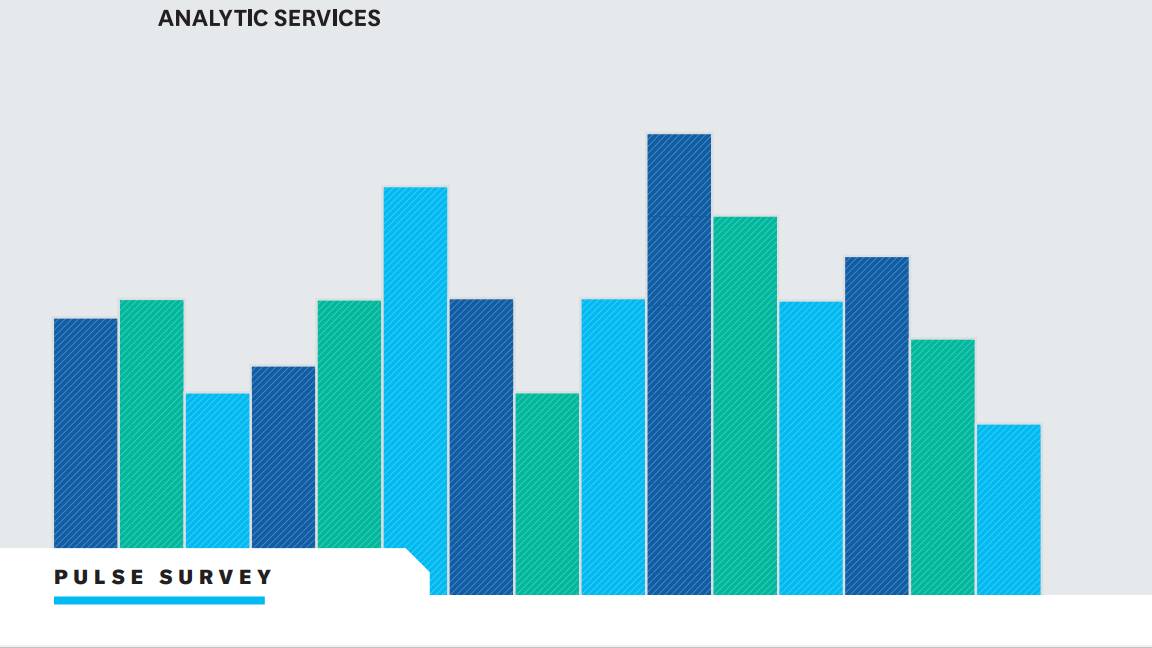 Digital optimisation paves the way to strategic supplier management
Digital optimisation paves the way to strategic supplier managementWhitepaper Procurement’s role as a strategic driver
By ITPro Published
-
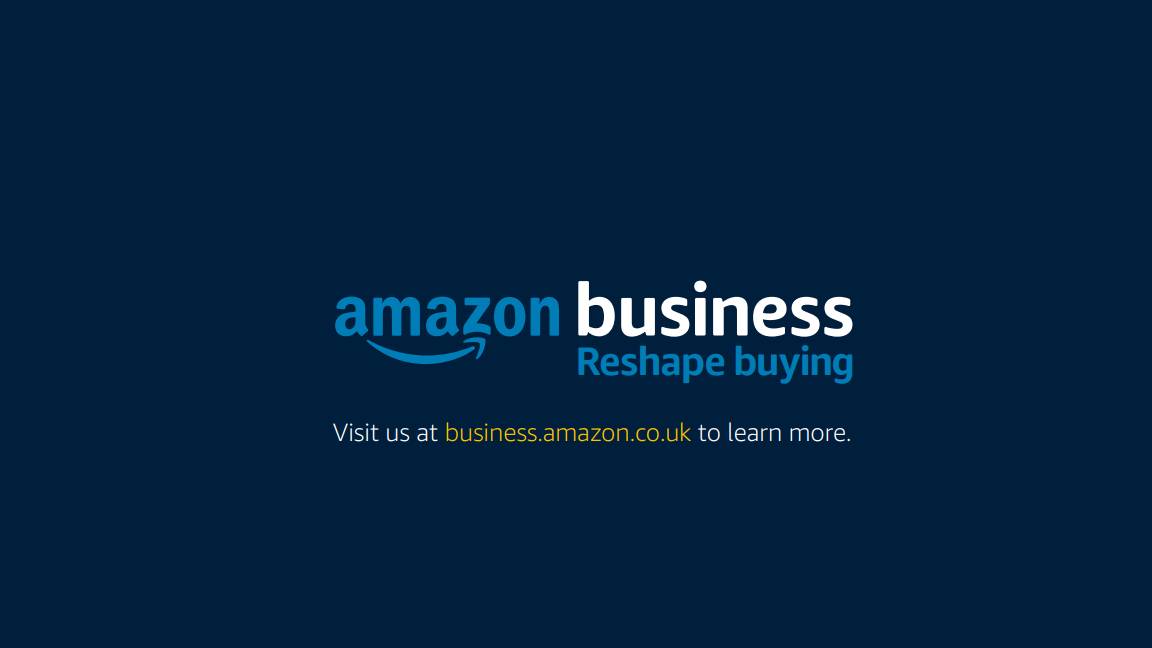 The small and medium business guide to buying
The small and medium business guide to buyingWhitepaper Optimising purchasing to save in 2024
By ITPro Published
-
 Move your organisation forward by refining your strategic procurement plans
Move your organisation forward by refining your strategic procurement plansWhitepaper An Executive’s Guide to Purchasing in 2024
By ITPro Published
-
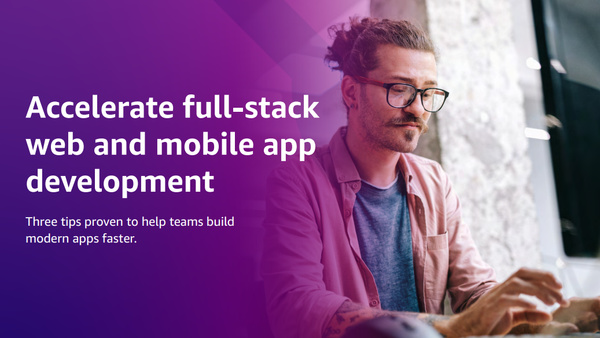 Accelerate full-stack web and mobile app development
Accelerate full-stack web and mobile app developmentWhitepaper Three tips proven to help teams build modern apps faster
By ITPro Published
-
 Establishing an OSPO is 'the next big evolution of the tech workplace'
Establishing an OSPO is 'the next big evolution of the tech workplace'News GitHub says having an open source programme office is essential to getting the most out of open source projects in an organisation
By Connor Jones Published
-
 Optimising storage infrastructure for DevOps practices
Optimising storage infrastructure for DevOps practicesWhitepaper Maintaining IT infrastructure to best support application services
By ITPro Published
-
 Synk to move into cloud security with Fugue acquisition
Synk to move into cloud security with Fugue acquisitionNews London firm claims deal will create industry's first cloud service posture management solution designed by and for developers
By Bobby Hellard Published